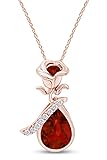All Categories
The Short Novels of John Steinbeck: (Penguin Classics Deluxe Edition)
Share Tweet
*Price and Stocks may change without prior notice
*Packaging of actual item may differ from photo shown
- Electrical items MAY be 110 volts.
- 7 Day Return Policy
- All products are genuine and original








About The Short Novels Of John
Product Description A Penguin Classics Deluxe Edition of Steinbeck's brilliant short novels Collected here for the first time in a deluxe paperback volume are six of John Steinbeck's most widely read and beloved novels. From the tale of commitment, loneliness and hope in Of Mice and Men, to the tough yet charming portrait of people on the margins of society in Cannery Row, to The Pearl's examination of the fallacy of the American dream, Steinbeck stories of realism, that were imbued with energy and resilience. For more than seventy years, Penguin has been the leading publisher of classic literature in the English-speaking world. With more than 1,700 titles, Penguin Classics represents a global bookshelf of the best works throughout history and across genres and disciplines. Readers trust the series to provide authoritative texts enhanced by introductions and notes by distinguished scholars and contemporary authors, as well as up-to-date translations by award-winning translators. Review By the Winner of the Nobel Prize in Literature About the Author John Steinbeck (1902-1968), winner of the Nobel Prize in Literature, achieved popular success in 1935 with the publication of Tortilla Flat. He went on to write more than twenty-five novels, including The Grapes of Wrath and Of Mice and Men. Excerpt. © Reprinted by permission. All rights reserved. Preface This is the story of Danny and of Danny’s friends and of Danny’s house. It is a story of how these three became one thing, so that in Tortilla Flat if you speak of Danny’s house you do not mean a structure of wood flaked with old whitewash, overgrown with an ancient untrimmed rose of Castile. No, when you speak of Danny’s house you are understood to mean a unit of which the parts are men, from which came sweetness and joy, philanthropy and, in the end, a mystic sorrow. For Danny’s house was not unlike the Round Table, and Danny’s friends were not unlike the knights of it. And this is the story of how that group came into being, of how it flourished and grew to be an organization beautiful and wise. This story deals with the adventuring of Danny’s friends, with the good they did, with their thoughts and their endeavors. In the end, this story tells how the talisman was lost and how the group disintegrated. In Monterey, that old city on the coast of California, these things are well known, and they are repeated and sometimes elaborated. It is well that this cycle be put down on paper so that in a future time scholars, hearing the legends, may not say as they say of Arthur and of Roland and of Robin Hood—“There was no Danny nor any group of Danny’s friends, nor any house. Danny is a nature god and his friends primitive symbols of the wind, the sky, the sun.” This history is designed now and ever to keep the sneers from the lips of sour scholars. Monterey sits on the slope of a hill, with a blue bay below it and with a forest of tall dark pine trees at its back. The lower parts of the town are inhabited by Americans, Italians, catchers and canners of fish. But on the hill where the forest and the town intermingle, where the streets are innocent of asphalt and the corners free of street lights, the old inhabitants of Monterey are embattled as the Ancient Britons are embattled in Wales. These are the paisanos. They live in old wooden houses set in weedy yards, and the pine trees from the forest are about the houses. The paisanos are clean of commercialism, free of the complicated systems of American business, and, having nothing that can be stolen, exploited, or mortgaged, that system has not attacked them very vigorously. What is a paisano? He is a mixture of Spanish, Indian, Mexican, and assorted Caucasian bloods. His ancestors have lived in California for a hundred or two years. He speaks English with a paisano accent and Spanish with a paisano accent. When questioned concerning his race, he indignantly claims pure Spanish blood and rolls up his sleeve to sho




 (2)
(2)



















